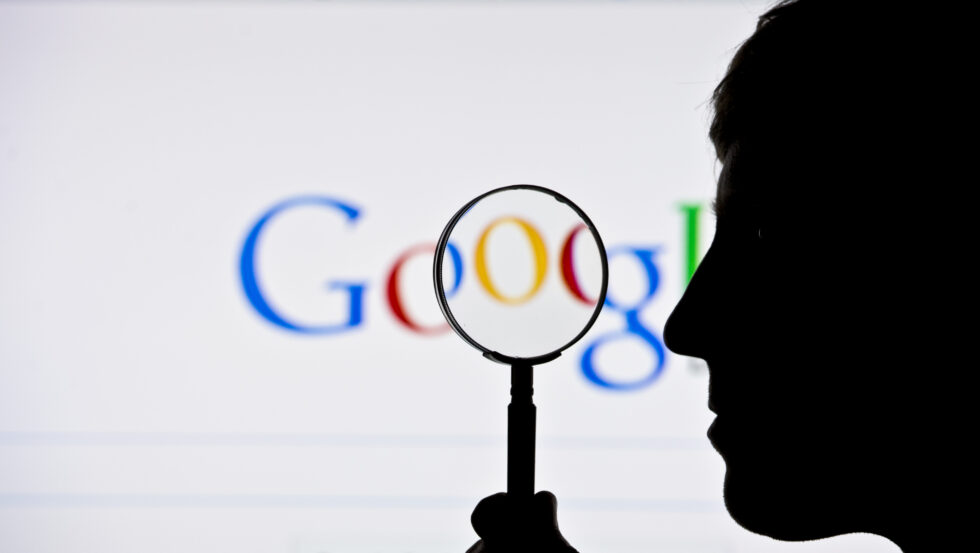
Google says a new AI tool on its search engine will rejuvenate the internet. Others predict an apocalypse for websites. One thing is clear: the current chapter of online history is careening towards its end. Welcome to the “machine web”.
The web is built on a simple bargain – websites let search engines like Google slurp up their content, free of charge, and Google Search sends people to websites in exchange, where they buy things and look at adverts. That’s how most sites make money.
An estimated 68% of internet activity starts on search engines and about 90% of searches happen on Google. If the internet is a garden, Google is the Sun that lets the flowers grow.
This arrangement held strong for decades, but a seemingly minor change has some convinced that the system is crumbling. You’ll soon see a new AI tool on Google Search. You may find it very useful. But if critics’ predictions come true, it will also have seismic consequences for the internet. They paint a picture where quality information could grow scarcer online and large numbers of people might lose their jobs. Optimists say instead this could improve the web’s business model and expand opportunities to find great content. But, for better or worse, your digital experiences may never be the same again.
On 20 May 2025, Google’s chief executive Sundar Pichai walked on stage at the company’s annual developer conference. It’s been a year since the launch of AI Overviews, the AI-generated responses you’ve probably seen at the top of Google Search results. Now, Pichai said, Google is going further. “For those who want an end-to-end AI Search experience, we are introducing an all-new AI Mode,” he said. “It’s a total reimagining of Search.”
People use Google Search five trillion times a year – it defines the shape of the internet. AI Mode is a radical departure. Unlike AI Overviews, AI Mode replaces traditional search results altogether. Instead, a chatbot effectively creates a miniature article to answer your question. As you read this, AI Mode is rolling out to users in the US, appearing as a button on the search engine and the company’s app. It’s optional for now, but Google’s head of Search, Liz Reid, said it plainly when launching the tool: “This is the future of Google Search.”
Here’s the problem critics foresee – AI Overviews already sends much less traffic to the rest of the internet, and many fear AI Mode could supercharge that trend. If this comes to pass, it could crush the business model that’s fuelled the digital content you’ve enjoyed for almost 30 years.
“If Google makes AI Mode the default in its current form, it’s going to have a devastating impact on the internet,” says Lily Ray, vice president of search engine optimisation (SEO) strategy and research at the marketing agency Amsive. “It will severely cut into the main source of revenue for most publishers and it will disincentivise content creators who rely on organic search traffic, which is millions of websites, maybe more. Google holds all the power.”
Google says these concerns are overblown. In fact, the company believes AI Mode will make the web healthier and more useful.
“Every day, we send billions of clicks to websites, and connecting people to the web continues to be a priority,” a Google spokesperson says. “New experiences like AI Overviews and AI Mode enhance Search and expand the types of questions people can ask, which creates new opportunities for content to be discovered.”
But Google and its critics agree on one thing: the internet is about to look very, very different. The next year or so will likely mark the end of an era online. The only question is what our world will look like when the dust settles.
It’s important to note that the internet isn’t going anywhere. Social media platforms are doing better than ever. Some popular sites with paywalls are thriving. What is about to change is how people find and discover information online. It’s the “open web” that some fear is at risk – the ecosystem of freely accessible independent websites, where people and businesses, often called “publishers”, share information, images and video.
We’ve heard this before, however. A Wired magazine cover declared “The web is dead” in 2010, yet here we are. Smartphones, apps and social media have all sparked doomsday predictions about the World Wide Web. But following Google’s announcement in May, the BBC spoke to over a dozen experts who say AI Mode poses an unprecedented threat to the digital economy.
“I think ‘extinction’ is too strong of a word for what’s going to happen to websites,” says Barry Adams, founder of the SEO firm Polemic Digital. “‘Decimation’ is the right word.”
Google disagrees. In fact, the company tells the BBC that AI Overviews have been good for the web, and AI Mode will be no different. Google insists these features send users to “a greater diversity of websites” and the traffic is “higher quality” because people spend more time on the links they click.





